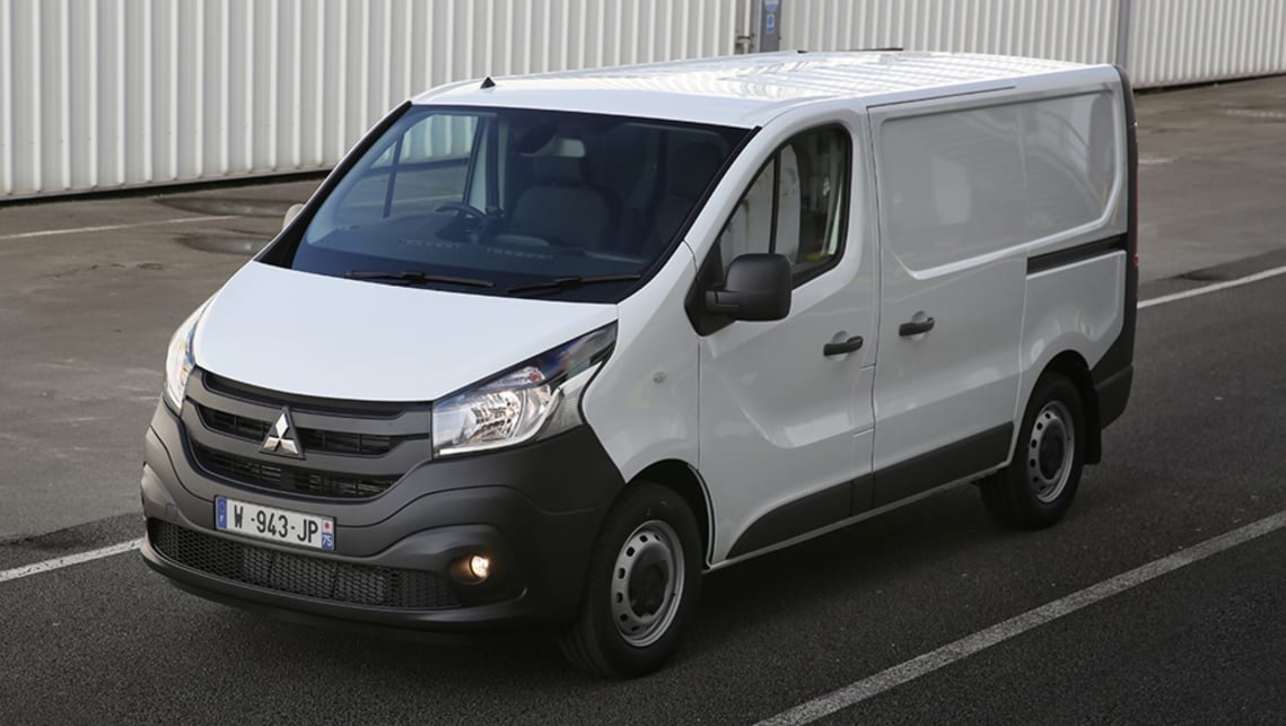Australia’s independent automotive safety authority, ANCAP, has given the ‘new’ Mitsubishi Express van the first zero-star safety rating.
As reported, the fourth-generation Express went on sale last July as a rebadged version of Alliance partner Renault's third-generation Trafic van, which launched locally in May 2015.
While ANCAP is yet to give the current Trafic a safety rating, the van’s people-mover sibling did receive three stars from the independent automotive safety authority’s European counterpart, Euro NCAP, in 2015.
Given the difference in configuration, the three-star Euro NCAP safety rating wasn’t adopted by ANCAP for the Trafic van at launch, let alone its Express equivalent.
And because the related Express van was released as a ‘new’ model more than two years later, it was eligible to be given an ANCAP safety rating of its own, although its one actually has a 2021 date stamp due to testing only concluding earlier this year.
In terms of specifics, the Express van received 55 per cent for Adult Occupant Protection, 40 per cent for Vulnerable Road User Protection and just seven per cent for Safety Assist. Of note, because it only has one row of seats, it wasn’t assessed for Child Occupant Protection.
Furthermore, ANCAP noted the risk of serious injury to the driver’s chest in three of the four crash tests (frontal offset, full-width frontal, and oblique pole) it conducted as well as a high chance of injury to driver’s neck in the whiplash test.
That said, the Express van was automatically given zero stars due its lack of active safety systems, including autonomous emergency braking (AEB) or any lane support system (LSS), which are required under ANCAP/Euro NCAP’s current protocols.
ANCAP Chief Executive Carla Hoorweg said: “Mitsubishi recently introduced the Express into our market, but its specifications do not align with today’s safety expectations.
“Unfortunately, we saw below-par performance for protection of occupants and vulnerable road users from the Express, with results lowered even further due to a fundamental lack of active safety systems.”
As a result, the Express van is now ineligible to be purchased by a number of fleets and other business buyers, who require vehicles with new vehicles with five-star ANCAP safety ratings.
“The Express’ poor result sends a clear signal to manufacturers and their global parent companies that safety must be prioritised in all segments offered to the Australasian market,” Ms Hoorweg added.
“Safety rating criteria and consumer expectations have evolved, as have manufacturers’ desire and ability to introduce improved levels of safety.
“We know Mitsubishi can deliver vehicles with high levels of overall safety and a wide range of modern safety technologies, and we encourage them to accelerate the introduction of these features into their van product.”
In response, a Mitsubishi spokesperson said: “The van was designed in accordance with the 2015 NCAP protocols.
“There has been significant movement in the application of driver-assistance technologies since that time, which has been reflected in the new NCAP protocols against which this van has been tested.
“The Express meets all Australian Design Rules (ADR) standards for vans, and the results of the crash testing by ANCAP indicate a good level of occupant protection.
“Compared to competitor peers of a similar age, the vehicle holds a competitive position in terms of NCAP rating: it holds a three-star (2015) rating in Europe. ANCAP did not report NCAP’s earlier rating.”
“The technology included in the vehicle reflects the lifecycle cycle of commercial vehicles, which is generally eight years or more,” they added.
For reference, when the third-generation Express van’s Australian discontinuation was announced in April 2013, Mitsubishi confirmed the move was being made due to its one-star ANCAP safety rating, going as far to say it was pursing five stars across its model range.


.jpg)

.jpg)


 copy.jpg)








.jpg)





.jpg)

.jpg)





Comments